(Chinhphu.vn) - Ho Chi Minh 's contributions as the founder, organizer, leader of the building and development of Vietnam's revolutionary press as well as as a person directly writing for nearly half a century are enormous. The journalistic legacy he left for future generations is the legacy of the Vietnamese revolution, the legacy of Vietnamese culture.
Grasping the theory and practice of revolution, and taking advantage of the right opportunity, on June 21, 1925, in Guangzhou, China, Nguyen Ai Quoc founded the Thanh Nien newspaper - the mouthpiece of the Vietnam Revolutionary Youth Association - the predecessor of the Communist Party of Vietnam . The birth of Thanh Nien newspaper opened a new press line in our country: the Vietnamese revolutionary press. As the vanguard in political and ideological work, with the function of propagating, agitating, and organizing the people to rise up to make revolution for independence and freedom, linking national independence with socialism, the revolutionary press has become an extremely powerful revolutionary weapon.
Thanh Nien newspaper - the mouthpiece of the Vietnam Revolutionary Youth Association - the predecessor of the Communist Party of Vietnam, was founded by leader Nguyen Ai Quoc on June 21, 1925, in Guangzhou - China - Photo archive
Following the Thanh Nien newspaper, many other revolutionary newspapers were born and operated in the same direction. Researcher Nguyen Thanh has compiled an (incomplete) list of Vietnamese revolutionary newspapers born from Thanh Nien to August 1945, including 256 newspaper names. The period after the founding of the Communist Party of Vietnam (February 1930) to May 1936 (121 newspaper names) was particularly flourishing. Even in the most difficult years after the outbreak of World War II, when the French colonialists took the opportunity to further tighten the repressive machinery in Indochina, until August 1945, there were still 55 revolutionary newspapers and magazines born. Among them were newspapers directly managed by Party leaders, which had a very strong impact on the pre-uprising movement, such as Vietnam Independence (1941), National Salvation (1942), and Liberation Flag (1942).
After the success of the August Revolution, the newspapers Cuu Quoc and Co Giai Phong continued to be published in the capital Hanoi with rich content, beautiful forms and a wider distribution area. Many new newspaper names were born in the capital and some big cities. Only five days after the Independence Declaration Ceremony (September 2, 1945), according to the decision of the Central Committee and the direct guidance of Uncle Ho, the Voice of Vietnam (September 7, 1945) and a few days later the Vietnam News Agency (September 15, 1945) were established, with the scale and tasks of national mass media agencies.
On the territory of Vietnam, "the truth has become a free and independent country", revolutionary press published openly and legally, enthusiastically awaited by the people of the whole country, deeply impacted and increasingly influenced public opinion. Revolutionary press, pioneered by Thanh Nien newspaper, gradually progressed to become the mainstream of the country's press.
When the national resistance war broke out, revolutionary press was narrowed in the Central region but, on the contrary, expanded in many areas throughout the country. In addition to the press published by the Central agency and circulated mainly in Viet Bac, the inter-zones III, IV, V, Northeast, the left bank of the Red River, the extreme South Central region and the South all had press. Some places such as the South Central region and the South established radio stations. In 1950, the Vietnam Journalists Association was born in Viet Bac. These achievements were thanks to the leadership of the Party and the great contributions of President Ho Chi Minh.
During the arduous days of resistance as well as in peace building, President Ho Chi Minh always paid attention to directing and building the press, especially attaching importance to training and fostering journalists. He praised and commended journalists who did good work and had good works as well as criticized and corrected shortcomings and inadequacies of the press. He always considered himself a person "with a predestined relationship with the press". At the two National Congresses of the Vietnam Journalists Association held in 1959 and 1962, President Ho Chi Minh visited and gave profound and thoughtful instructions.
Ho Chi Minh - A lifelong journalist
Wherever he was, Nguyen Ai Quoc - Ho Chi Minh was always interested in the press - Photo archive
As the highest leader of the Party and State, President Ho Chi Minh not only cared about building and directing the press, and gave it many favors, but he also wrote for newspapers himself. Ho Chi Minh was a tireless journalist throughout his life. Even during his time as the country's leader, with heavy duties and limited time, Uncle Ho still wrote for newspapers regularly. As for Nhan Dan newspaper, from the time it published its first issue (in 1951) until his passing (in 1969), about 1,200 of his articles were published, on average, he wrote 60-70 articles per year. In half a century, from the date of publishing the first article until his death, Uncle Ho wrote no less than 2,000 articles.
Domestic and foreign researchers, when looking back at President Ho Chi Minh's journalism career, all agree: "After the world war, Nguyen Ai Quoc was the journalist who wrote the most to denounce the colonial regime, defended the most strongly the rights of oppressed peoples to regain dignity and freedom, and was the most active and organized to gather, in Paris and Guangzhou, the Asian and African peoples who had just been deceived once again by (US President) Wilson and his gang at Versailles[1]. "He was a journalist in the truest sense of journalism. He did not pay attention to his own name and career, but only cared about the sacred goal and used his pen to serve the revolution"[2]. "Nguyen Ai Quoc was the most carefully trained Vietnamese journalist, and in fact, had the highest achievements in Vietnamese journalism. An international journalist who wrote in French, Russian, and Chinese. A journalist whose articles were exemplary in language, eloquent in theory, and awakened people's hearts with results. "A journalist whose articles attract everyone's attention, are always new, always close to immediate needs and appealing to readers"[3]. "Today, reading his articles (published in French newspapers) is still extremely interesting... Nguyen's writing style is that of a talented polemicist"[4], etc...
President Ho Chi Minh's journalistic thinking stemmed from a deep awareness of the role of the press in the struggle to reform and build society, in which the focus for the Vietnamese people in the first half of the 20th century was to break the chains of oppression and exploitation of colonialism and feudalism, and gain independence and freedom for the country. Therefore, wherever he worked, he was primarily concerned with founding the press and personally participated in journalistic work. After arriving in France for a few years, he was a contributor to several major newspapers such as L'Humanité (Humanity), LaVie Ouvrière (Worker's Life), Le Populaire (The Common Man)... He participated in founding the newspaper Le Paria and prepared to launch Vietnam Soul. In Russia, he wrote for the Soviet press and the press of the Communist International. In China, he collaborated with the newspaper Cuu Vong Nhat Bao (Chinese), Canton Gazette (Guangzhou Newspaper - English), the Soviet News Agency Rosto and founded the newspaper Thanh Nien. In Thailand, he launched the overseas Vietnamese newspapers Than Ai and Dong Thanh. Returning to the country, he published the newspaper Viet Nam Doc Lap... Having just regained independence, he established the National Radio Station and the National News Agency...
President Ho Chi Minh's journalistic thinking is consistent with his view on culture: Culture is a front, a fundamental front of society. He pointed out that in the process of national construction, there are four issues that need attention and must be considered equally important: Politics, economics, society, and culture. The press is both a component of culture and a means of expressing culture and implementing cultural policies. The press is the vanguard in cultural and ideological work. Journalists are soldiers. Pens and paper are weapons. Articles are revolutionary proclamations. In any revolutionary period, revolutionary journalism always maintains its role and vanguard position. The more society develops, the more science and technology advance, the more the role of the press continues to increase, not decrease.
According to Ho Chi Minh's point of view, the task of the press is to serve the people, to serve the revolution. That is the core, the issue that needs to be considered first. In a letter to the journalism class named Huynh Thuc Khang (1948), he pointed out: "The task of the newspaper is to propagate, agitate, train, educate and organize the people to bring them to a common goal. The goal is resistance and nation building".
Uncle Ho reminded journalists to always keep the above in mind. Speaking at the Second National Congress of the Vietnam Journalists Association (1959), he went straight to the main issue: "Let us ask the question: Who does the press serve?"[5]. And he immediately answered: "Our press must serve the working people, serve socialism, serve the struggle to unify the country, and for world peace"[6]. At the next Congress of the Association, Uncle Ho once again emphasized: "The task of the press is to serve the people, serve the revolution".
Ho Chi Minh always fought for freedom of the press.
President Ho Chi Minh, Vice President Ton Duc Thang and comrade Truong Chinh took a souvenir photo with a group of news and press reporters serving the 3rd National Congress of the Party (1960) - Documentary photo
He considered freedom of the press a fundamental right of the nation and of humanity. From the first articles written in French, he persistently fought for freedom of the press, for colonialism to abolish censorship, and for the French authorities in Vietnam to properly implement the Press Law passed by the French Parliament in 1881, so that Vietnamese people could publish newspapers.
He asserted: "Our regime is a democratic regime, thoughts must be free. What is freedom? On all issues, everyone is free to express their opinions, contributing to finding the truth. That is a right and also a duty of everyone. When everyone has expressed their opinions, has found the truth, then the right to freedom of thought turns into the right to freedom to obey the truth" [7]. In Uncle Ho's press thinking, freedom of the press is not only the right of journalists or those who intend to do journalism, but the press must be an important channel, an open forum for everyone to exercise the right to freedom of thought, together finding the truth to obey the truth. Ho Chi Minh's press thinking is codified in the Press Law with the phrase "the press is the forum of the people".
Ho Chi Minh always emphasized the role and power of the press in the political, economic, cultural, social life of the country. The press is a means and a weapon of the people in the struggle to liberate, protect, build and develop the country, aiming at a rich people, a strong country, a democratic, fair and civilized society. If the press does well and is accepted by the people, it can have great authority and power. But that is the power entrusted by the people, that is the power of the people. Ho Chi Minh respected and emphasized the role of the press. He believed that "being a journalist is important and glorious", "journalists are soldiers", but he often emphasized more on the responsibility of the press.
Associate Professor, Dr. Dao Duy Quat, former Deputy Head of the Central Ideology and Culture Committee
To fully demonstrate its power, the press must be highly combative, have a clear tendency, and always aim for a steadfast goal - that goal is also the goal that the revolutionary cause of the people is aiming for. Due to its nature and function, the revolutionary press always holds a pioneering position, holding high the flag to lead the way in disseminating progressive ideas and knowledge. The article is a revolutionary proclamation to propagate, mobilize, and organize the masses to fight; it must promote the creativity of the masses, discover, praise, and introduce good examples for everyone to follow; at the same time, point out and criticize to overcome and prevent bad things.
One issue that Ho Chi Minh was concerned about was the purpose and audience of the press. He told the students of the Huynh Thuc Khang journalism class that the audience of a newspaper must be the majority of the people. A newspaper that is not favored by the majority is not worthy of being a newspaper. Visiting the Journalists' Congress (1959), he advised: "Our press is not for a small number of people to read, but to serve the people... so it must have a mass character and fighting spirit" [8]: journalists should not think about "writing articles to show off", writing "to leave their names forever". At the next Congress of the Journalists' Association (1962), he again kindly advised: "Every time you write an article, ask yourself: Who are you writing for? What is the purpose of writing?".
Journalistic ethics, in Ho Chi Minh's journalistic thinking, is first and foremost expressed in the spirit of journalists as soldiers. Journalists must consider themselves revolutionary soldiers, fighting all their lives for the people's cause, for independence and freedom for socialism. He pointed out: "Journalists must have a firm political stance. Politics must be mastered. If the political line is correct, everything else can be correct."[9]
To fulfill their role as soldiers, journalists must fight to overcome individualism. They must consider "writing as anything else"; journalism is revolutionary work, not something so formidable; writing is not for the purpose of leaving one's name for posterity.
Journalism ethics requires journalists to be "close to the masses", "deep into reality, deep into the working masses" to write practically; overcome the habit of boasting, formalism, and the habit of using foreign words. Journalists must be honest. Uncle Ho always required journalists to respect the authenticity of their works. He repeatedly reminded journalists who had the opportunity to follow him to serve his work to be "careful" with every detail and every figure cited in the article. We must preserve the purity of the Vietnamese language, "an extremely ancient and extremely precious treasure of the nation".
In particular, journalists must "always try to learn, always need to progress", "must study continuously and must always be humble". Journalists "must have the will, not hide ignorance", "if you don't know, you must try to learn, and if you try to learn, you will definitely learn". At the same time, "you must have the will to be self-reliant and independent, when facing difficulties, you must overcome them, not give up on them; you must overcome difficulties, fulfill your duties". That is the most correct path for journalists to "improve their cultural level, delve into their profession", constantly accumulate knowledge and life experiences, create a foundation and profound cultural qualities for journalism, making journalists at the same time culturalists, truly culturalists.
Ho Chi Minh - Great journalist and cultural figure
President Ho Chi Minh with delegates attending the 3rd Congress of Vietnamese Journalists (September 8, 1962) - Photo: VNA documents
Ho Chi Minh performed his journalistic and literary works excellently. He created his own style - Ho Chi Minh's style, stable yet variable with literary nuances, rhetorical arts and extremely diverse professional skills, always changing to suit the context, theme of the work and the target audience that the author always aimed for. It seemed that every time he picked up a pen, he clearly saw the readers appearing before his eyes - not the general "readers" as an abstract concept - but the specific readers, the flesh and blood people... Uncle Ho wrote for those people. He talked to those people. He tried to write so that those specific people could understand the ideas he intended to express and sympathize with his intense feelings.
We all know that during the resistance war against the French and even after returning to the capital Hanoi, every time he finished writing an article, Uncle Ho often read it to a few comrades who served him closely. Most of them were ordinary workers with low education. If they found it difficult to understand, they would immediately correct it. However, the political articles and short stories he wrote in foreign languages for major newspapers were exemplary works in both content and language, and to this day still amaze many outstanding writers and journalists.
Commenting generally on Uncle Ho's writing style, comrade Truong Chinh wrote: "President Ho's way of speaking and writing has very unique features: the content is assertive, profound, goes deep into people's emotions, conquers both their hearts and minds; the images are vivid, simple, easy to understand, rich in national and popular character".
As an experienced journalist and writer, Ho Chi Minh, every time he picked up a pen, was always aware of who he was writing for. Before writing, he always considered every word, every letter, every punctuation mark. He told journalists: "The enemy pays a lot of attention, you are very interested in our country's press. Therefore, when working in journalism, you must be extremely careful about form, content, and writing style."
Ho Chi Minh always advised journalists that "journalism must have a mass character", that "it must be written in a way that is easy for the general public to understand, concise and easy to read". However, these teachings should absolutely not be understood as Uncle Ho accepting simplification of content or tolerating vulgarity and easygoing tendencies in form. He taught journalists: "We must write for literature... Readers will only read if they find it interesting and literary".
In all aspects, Nguyen Ai Quoc – Ho Chi Minh is an exemplary journalist. He not only founded and directed the building and development of Vietnam’s revolutionary press but was also an outstandingly talented journalist who directly wrote, leaving behind a large and diverse body of work for posterity. Ho Chi Minh is an exemplary journalist, a shining example, becoming the pride of Vietnam’s press today and forever.
Associate Professor, Dr. Dao Duy Quat
Former Deputy Head of the Central Ideology and Culture Committee
--------------------------
[1] Bui Duc Tinh: The first steps of journalism, new poetry novels, Ho Chi Minh City Publishing House, 1992
[2] Nguyen Thanh: Vietnamese revolutionary press 1925-1945, Social Sciences Publishing House, Hanoi, 1994
[3] Hong Chuong: Studying the history of Vietnamese journalism, Marxist-Leninist Textbook Publishing House, Hanoi, 1987
[4] Vuong Hong Sen: Saigon in the past, Khai Tri Publishing House, Saigon, 1968
[5] Ho Chi Minh: Complete Works, op. cit., vol. 12, p. 166
[6] Ho Chi Minh: Complete Works, op. cit., vol. 12, p. 166
[7] Ho Chi Minh: Complete Works, op. cit., vol. 10, p. 378
[8] Ho Chi Minh: Complete Works, op. cit., vol. 12, p. 167
[9] Ho Chi Minh: Complete Works, op. cit., vol. 12, p. 166
Source link


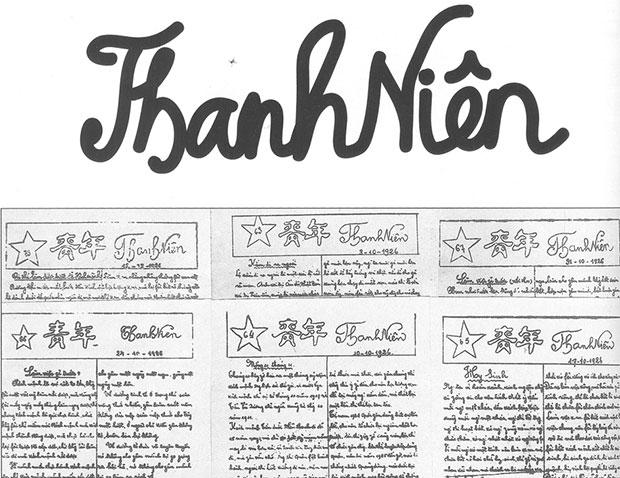
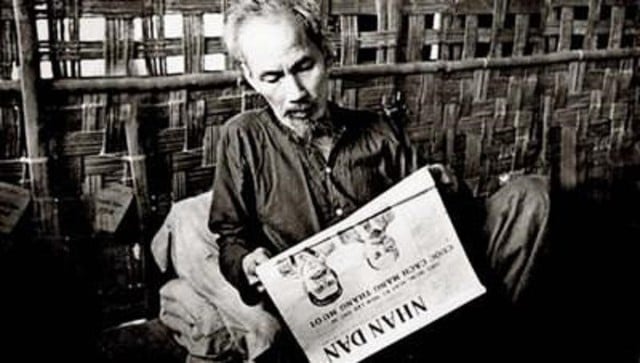
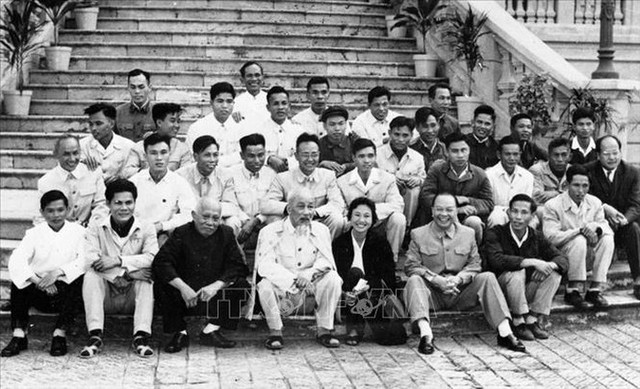
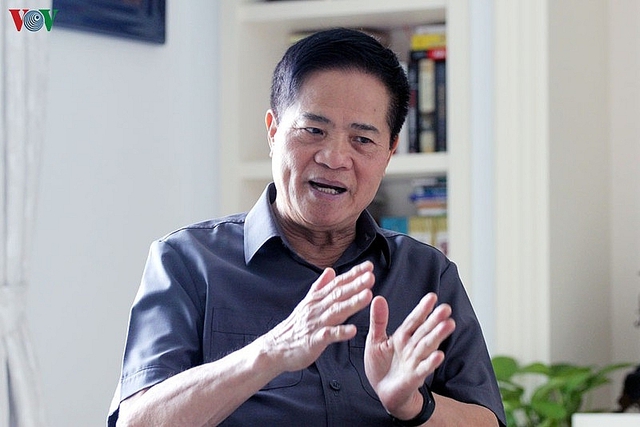
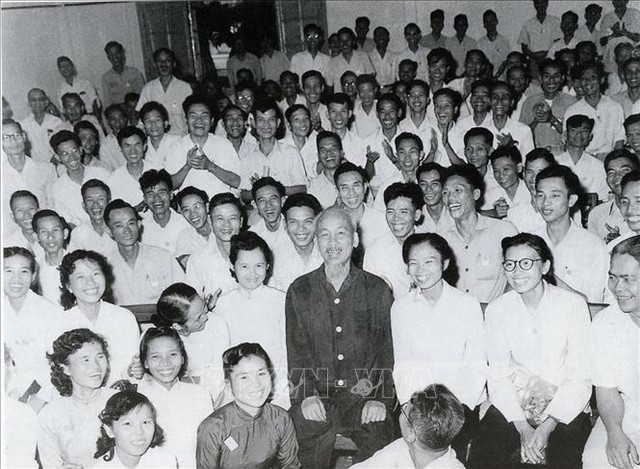






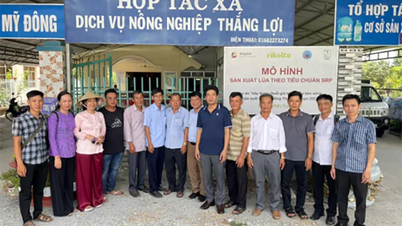


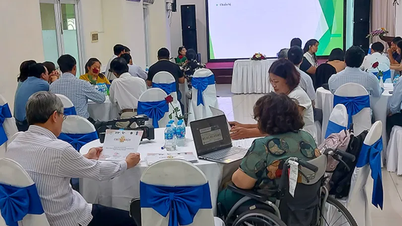
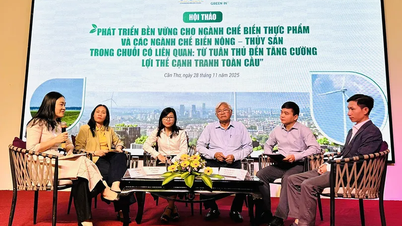
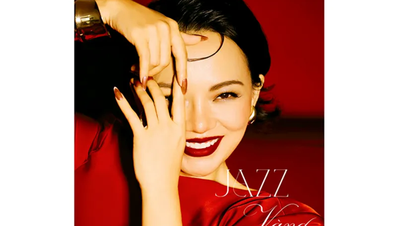




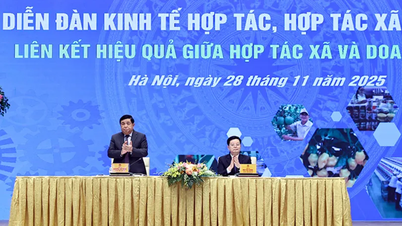

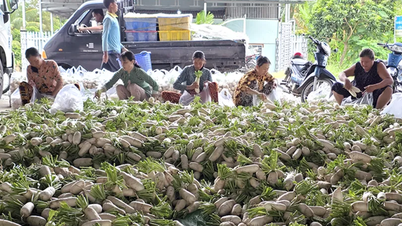
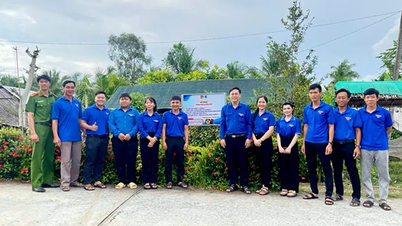
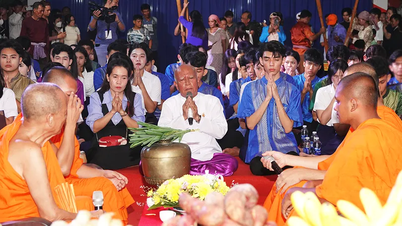
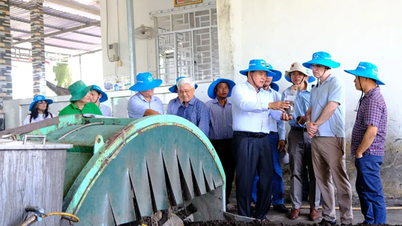






































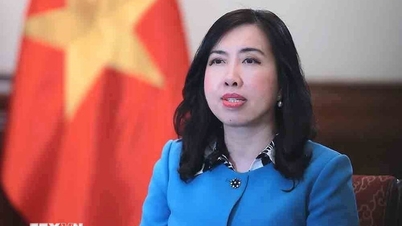





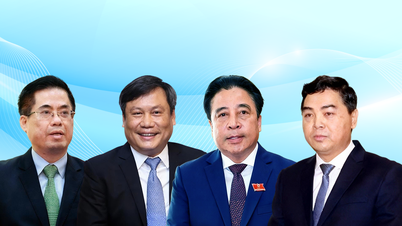
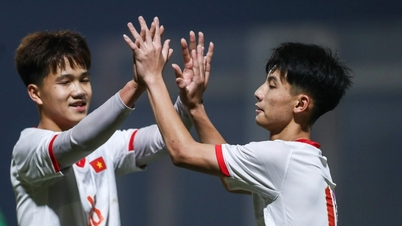









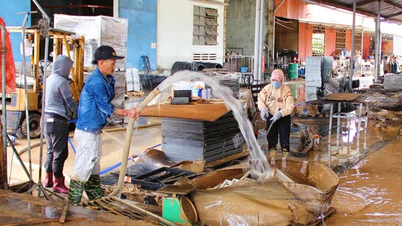

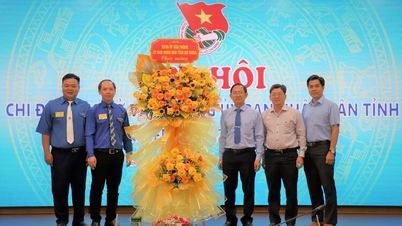

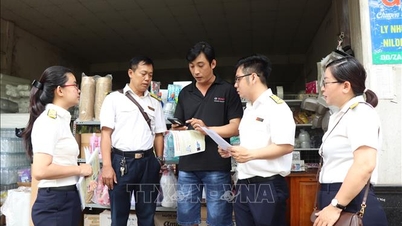

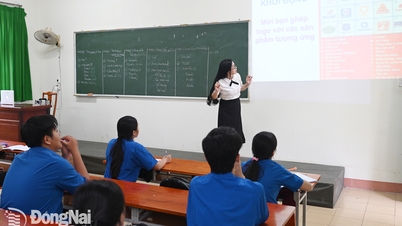

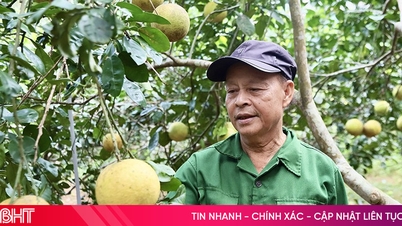











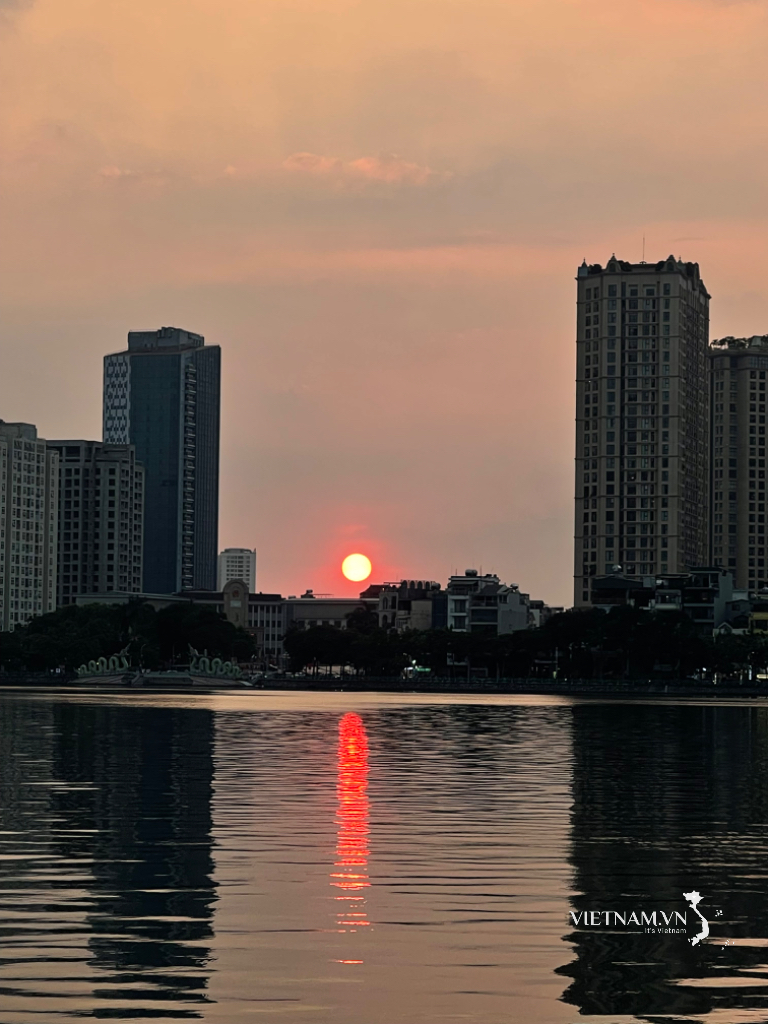



Comment (0)